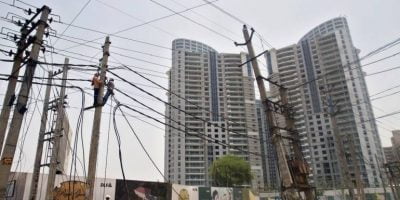
With the new Real Estate (Regulation and Development) Act 2016 coming into effect, the sector braced for disruptions. Under the new rule, stricter norms were framed to bring in transparency in the system seen as a boon to consumers and the bankers.
However, things do not seem to be working as planned.
First the banks, who have lent money to the developers, are running after them for additional collateral, in case there is none available. And bankers are asking for personal properties of promoters as guarantees.
An newspaper article highlights the dilemma in the real estate sector as builders are required by the new law to deposit 70 percent money collected from home buyers in an escrow account. On the other hand, banks have historically taken unbuilt flats as mortgage from the builders. Cash flow from sale of these flats was just about enough to cover a large part of the loan amount.
RERA regulation has put the bankers in a fix as these flats can no longer be used as mortgages since the banks will have no right over 70 percent of the collection as per the regulation. The 30 percent of revenue that remains is not even enough to cover the principal amount of loan, reports the article.
Developers are known to construct a property largely on clients’ money, after borrowing initial money from banks. This provision under RERA can have a big impact on future construction activity. However, the immediate pressure will be on bankers who fear that they may inadvertently end up violating the Reserve Bank of India’s (RBI) provisioning norms by trying to lay their hand on the escrow money.
As mentioned earlier bankers are asking for personal properties of promoters of these companies as guarantee. In case of a shortfall they might have to pressurise builders to sell the properties, which can depress prices in the near future.
For the real estate sector, the bigger issue is not the presence of RERA but rather the absence of RERA.
In many cities the rules have not yet been formalised. Key cities for real estate players like Gurgaon and Bengaluru do not have the rules in place. Maharashtra, which was one of the first states to have a regulation in place, has only 72 projects registered under RERA. A mid-June report by Edelweiss says that in Mumbai only 16 projects have been registered out of around 800 (estimated) ongoing projects in the city.
With a July 31, 2017 deadline set for implementation of the regulator most states and cities are staring at uncertainty. In Noida, builders are ready with their documentation and compliance requirements needed for registration but the state government is not ready with its rules.
The first hurdle for the real estate sector is in getting themselves registered within a month provided the state governments get their act in order. But as soon as the projects are registered they will face a bigger problem of arranging to repay the banks or provide enough security to circumvent the clauses under RERA. Certainly not the best of times to be a builder.
[“Source-moneycontrol”]

